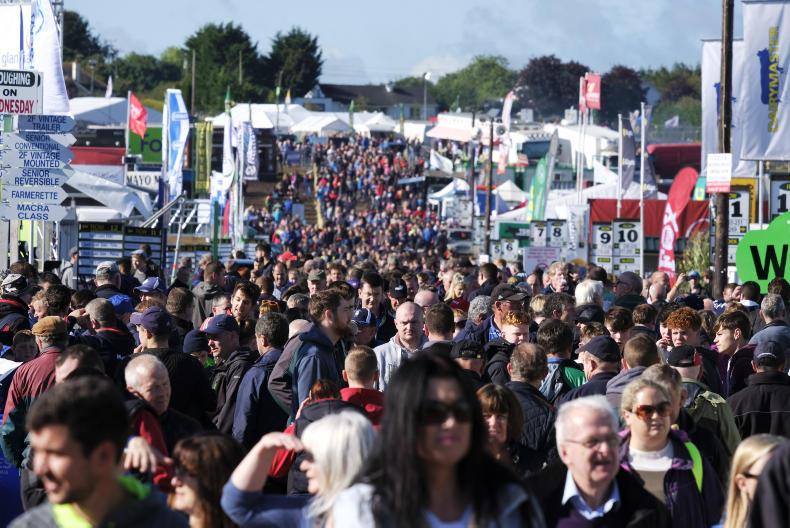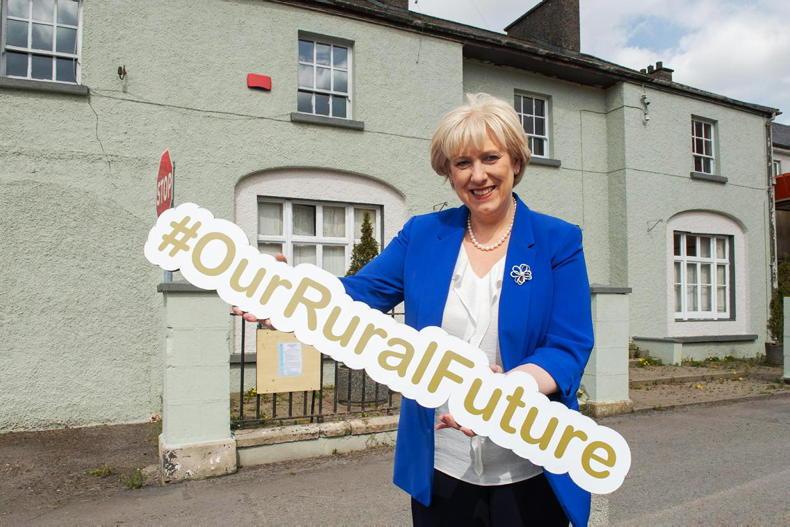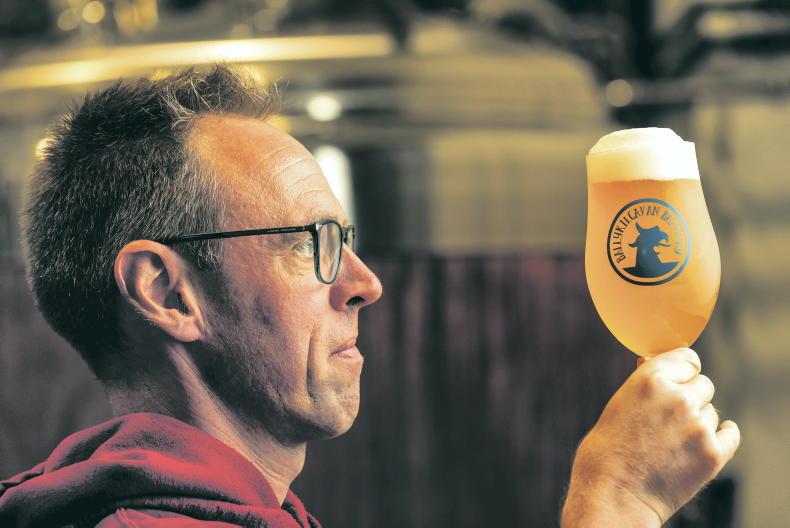You’re at that all important networking event, having listened to the speakers, and now it’s the coffee break. So how do you make the connection with the people you need to know? It is not the time to be on your phone or over-indulging at the food stand says Rob Cullen, membership manager at the Dublin Chamber of Commerce.
Listen to "How to network effectively" on Spreaker.
“There’s always food at networking events. Don’t eat it. It’s not nice when you see someone eating a pastry and then offering you a handshake. Plus, you can’t speak to people with your mouth full,” Rob tells Irish Country Living. He adds that having a cup of tea or coffee in hand is fine and often standing in line for the coffee can be a good time to introduce yourself to the person waiting next to you.
The key thing to remember is most people that are at networking events are there to meet people and collaborate. If you have a conversation with someone and agree to do something, such as emailing them tomorrow, then do it.
“Follow up and connect via email, don’t let it slide and don’t send them a price list for your products. Refer to the common interest you established in conversation.”
Before anyone buys anything you need to get to know them, in order to get to like them and learn to trust them.
“Not an awful lot of deals are done at networking events, but you are arranging one-to-one meetings; a coffee or a trip to a rugby match. My pet hate is people leaving their business cards on a table, they all get left there and chucked in a bin. Be more strategic, listen to people and learn what they do.”
Why network?
It is difficult to put a value on networking, but Rob points out that “your network is your net worth”. The more diversity in the people you know, the more effective you become at leveraging those contacts to make things happen in business.
Seven rules of networking
1 Preparation
If you are signed up to go to an event, find out who else is going and identify three or four people you want to meet at it. Connect with them before the event on LinkedIn and send them a message to say you are going too and offer to have a coffee with them when you are at the event. You can also pick out people who you want to be introduced to and ask those organising it to arrange the introduction.
There is a function on the LinkedIn app where you can connect with other people in the room. But Rob says this is only useful if there is someone you had identified as one you wanted to meet and didn’t get to them.
2 Meet new people
Do not stand chatting to the people you already know. Learn how to read a situation. If there is a gap in a group ask, “Can I join you?”. But be wary of doing that where there is a closed group, where something is going on. They may just be arranging a meeting but they don’t want you butting in. And introduce yourself to people standing on their own, it could be the best contact you make on the day.
3 First impressions
Dress to impress. This does not necessarily mean a suit. Whether or not your company has a dress code, you are representing the company you work for. Branded company wear is fine for example, but don’t wear a shirt with a coffee stain.
The worst thing you can do at a conference is get a name badge and not make it visible. Place it on the right hand lapel, where it will be most visible when you shake hands with someone.
And when going in for that all important handshake, make sure it is firm and make eye contact.
4 Find a common interest
To start up a conversation with a stranger can be difficult. Even though you may be selling stationary, do not start with a sales pitch. Have a few questions that will prompt a natural conversation. For example, ask where they are from or how far they travelled to be there today. If they tell you they are from Kilkenny then commiserate with them on the all-Ireland or tell them you visited the castle on a family holiday, for example.
Another way to start a conversation is to talk about something that’s current, for example the all-Ireland replay or beef prices or what’s on the front page of the Irish Farmers Journal this week!
When you’ve identified that common interest don’t be afraid to make a note of it on their business card to remind yourself when you’re back in the office.
5 Be mindful of the
bigger network
When you meet someone you are not just meeting them, you are connecting with their network. This is important to bear in mind because the person you have met may not ever do business with you, but they may know someone that wants to buy your product or employ your services. Always give them your business card and tell them to pass it on to anybody who may need to talk to you. In business, referrals are often better than price.
6 Help – don’t sell
All you’re selling at a networking event is a cup of coffee and a catch up at a later date. Be polite, listen to people and get to know them and what they do. When you’ve finished chatting suggest that you meet up “and see if we can help each other out”.
7 Know how to get away
And finally, know how to get away from a conversation when you are finished with it. If you have a number of people to meet you don’t want to get caught chatting to one for too long. You could say; “I see someone I wanted to speak to, please excuse me” or “I’m going to get a cup of coffee, would you like to join me?”
Traditionally golfing has been the business-person’s sport of choice. It is often said that deals are done on the golf course. Is this still the case?
Damien Connolly from the confederation of golf in Ireland says that this is difficult to gauge.
“From feedback received working with clubs, there has definitely been an uptake in more corporate golf events in 2019. However, it has been a low base over the past five or six years. An ESRI study in 2017 highlighted that individuals with higher levels of educational attainment and income, as well as those in professional and managerial occupations, are far more likely to play golf.”
Meanwhile, 30 members of the Dublin Chamber of Commerce recently took off on its fifth charity cycle, having raised over €170,000 over the last number of years. Is cycling the sport of choice for decision makers today?
Rob Cullen from the Dublin Chamber of Commerce, says that there are events on every day of the week for people to network at. “A lot of our corporate members will organise their own networking events to help people grow. We also organise a number of events here.” He added that the trend for small- to medium-size enterprises is to use co-working spaces where they can link up with people from other professions that would be useful to them at some stage in their business.
You’re at that all important networking event, having listened to the speakers, and now it’s the coffee break. So how do you make the connection with the people you need to know? It is not the time to be on your phone or over-indulging at the food stand says Rob Cullen, membership manager at the Dublin Chamber of Commerce.
Listen to "How to network effectively" on Spreaker.
“There’s always food at networking events. Don’t eat it. It’s not nice when you see someone eating a pastry and then offering you a handshake. Plus, you can’t speak to people with your mouth full,” Rob tells Irish Country Living. He adds that having a cup of tea or coffee in hand is fine and often standing in line for the coffee can be a good time to introduce yourself to the person waiting next to you.
The key thing to remember is most people that are at networking events are there to meet people and collaborate. If you have a conversation with someone and agree to do something, such as emailing them tomorrow, then do it.
“Follow up and connect via email, don’t let it slide and don’t send them a price list for your products. Refer to the common interest you established in conversation.”
Before anyone buys anything you need to get to know them, in order to get to like them and learn to trust them.
“Not an awful lot of deals are done at networking events, but you are arranging one-to-one meetings; a coffee or a trip to a rugby match. My pet hate is people leaving their business cards on a table, they all get left there and chucked in a bin. Be more strategic, listen to people and learn what they do.”
Why network?
It is difficult to put a value on networking, but Rob points out that “your network is your net worth”. The more diversity in the people you know, the more effective you become at leveraging those contacts to make things happen in business.
Seven rules of networking
1 Preparation
If you are signed up to go to an event, find out who else is going and identify three or four people you want to meet at it. Connect with them before the event on LinkedIn and send them a message to say you are going too and offer to have a coffee with them when you are at the event. You can also pick out people who you want to be introduced to and ask those organising it to arrange the introduction.
There is a function on the LinkedIn app where you can connect with other people in the room. But Rob says this is only useful if there is someone you had identified as one you wanted to meet and didn’t get to them.
2 Meet new people
Do not stand chatting to the people you already know. Learn how to read a situation. If there is a gap in a group ask, “Can I join you?”. But be wary of doing that where there is a closed group, where something is going on. They may just be arranging a meeting but they don’t want you butting in. And introduce yourself to people standing on their own, it could be the best contact you make on the day.
3 First impressions
Dress to impress. This does not necessarily mean a suit. Whether or not your company has a dress code, you are representing the company you work for. Branded company wear is fine for example, but don’t wear a shirt with a coffee stain.
The worst thing you can do at a conference is get a name badge and not make it visible. Place it on the right hand lapel, where it will be most visible when you shake hands with someone.
And when going in for that all important handshake, make sure it is firm and make eye contact.
4 Find a common interest
To start up a conversation with a stranger can be difficult. Even though you may be selling stationary, do not start with a sales pitch. Have a few questions that will prompt a natural conversation. For example, ask where they are from or how far they travelled to be there today. If they tell you they are from Kilkenny then commiserate with them on the all-Ireland or tell them you visited the castle on a family holiday, for example.
Another way to start a conversation is to talk about something that’s current, for example the all-Ireland replay or beef prices or what’s on the front page of the Irish Farmers Journal this week!
When you’ve identified that common interest don’t be afraid to make a note of it on their business card to remind yourself when you’re back in the office.
5 Be mindful of the
bigger network
When you meet someone you are not just meeting them, you are connecting with their network. This is important to bear in mind because the person you have met may not ever do business with you, but they may know someone that wants to buy your product or employ your services. Always give them your business card and tell them to pass it on to anybody who may need to talk to you. In business, referrals are often better than price.
6 Help – don’t sell
All you’re selling at a networking event is a cup of coffee and a catch up at a later date. Be polite, listen to people and get to know them and what they do. When you’ve finished chatting suggest that you meet up “and see if we can help each other out”.
7 Know how to get away
And finally, know how to get away from a conversation when you are finished with it. If you have a number of people to meet you don’t want to get caught chatting to one for too long. You could say; “I see someone I wanted to speak to, please excuse me” or “I’m going to get a cup of coffee, would you like to join me?”
Traditionally golfing has been the business-person’s sport of choice. It is often said that deals are done on the golf course. Is this still the case?
Damien Connolly from the confederation of golf in Ireland says that this is difficult to gauge.
“From feedback received working with clubs, there has definitely been an uptake in more corporate golf events in 2019. However, it has been a low base over the past five or six years. An ESRI study in 2017 highlighted that individuals with higher levels of educational attainment and income, as well as those in professional and managerial occupations, are far more likely to play golf.”
Meanwhile, 30 members of the Dublin Chamber of Commerce recently took off on its fifth charity cycle, having raised over €170,000 over the last number of years. Is cycling the sport of choice for decision makers today?
Rob Cullen from the Dublin Chamber of Commerce, says that there are events on every day of the week for people to network at. “A lot of our corporate members will organise their own networking events to help people grow. We also organise a number of events here.” He added that the trend for small- to medium-size enterprises is to use co-working spaces where they can link up with people from other professions that would be useful to them at some stage in their business.









SHARING OPTIONS